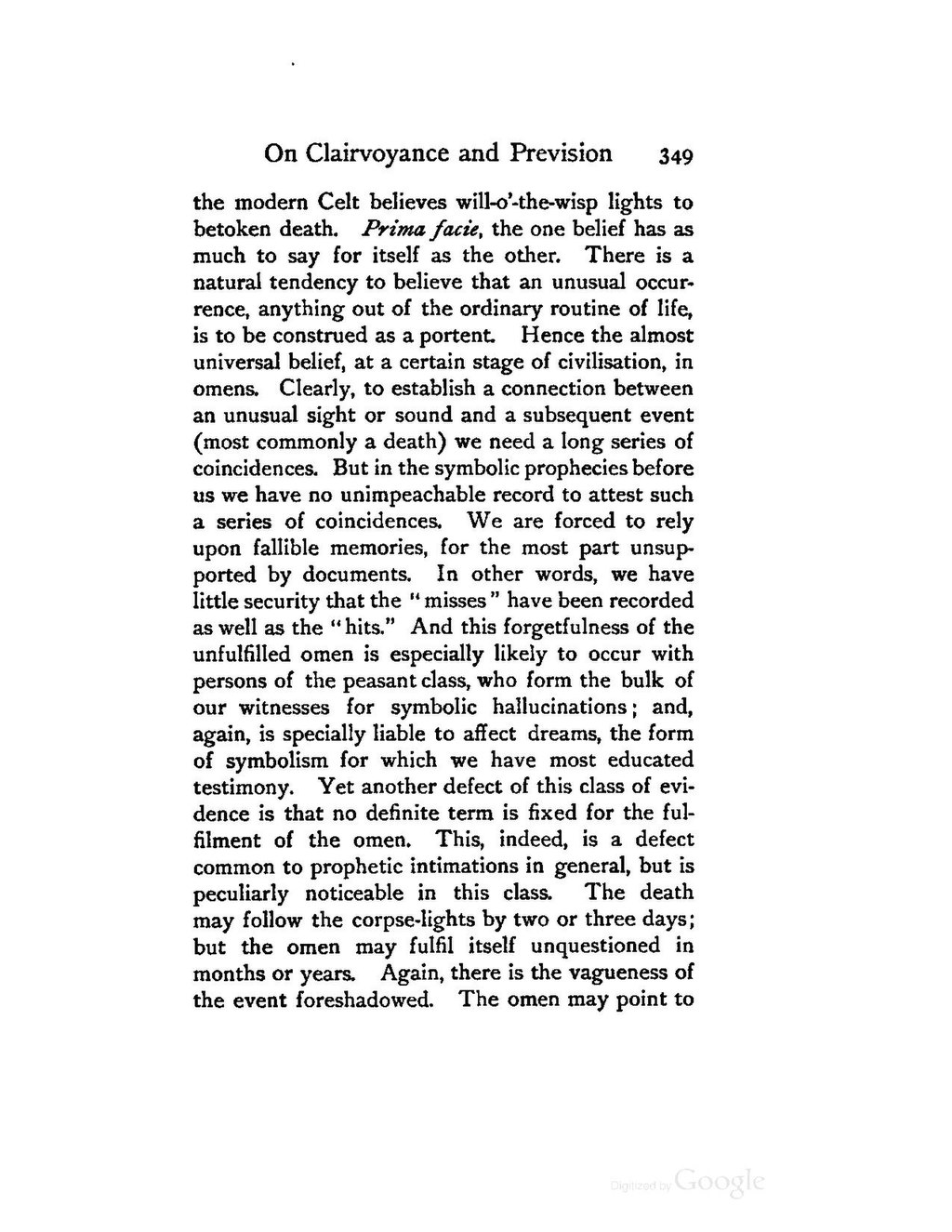the modern Celt believes will-o'-the-wisp lights to betoken death. Prima facie, the one belief has as much to say for itself as the other. There is a natural tendency to believe that an unusual occurrence, anything out of the ordinary routine of life, is to be construed as a portent. Hence the almost universal belief, at a certain stage of civilisation, in omens. Clearly, to establish a connection between an unusual sight or sound and a subsequent event (most commonly a death) we need a long series of coincidences. But in the symbolic prophecies before us we have no unimpeachable record to attest such a series of coincidences. We are forced to rely upon fallible memories, for the most part unsupported by documents. In other words, we have little security that the "misses" have been recorded as well as the "hits." And this forgetfulness of the unfulfilled omen is especially likely to occur with persons of the peasant class, who form the bulk of our witnesses for symbolic hallucinations; and, again, is specially liable to affect dreams, the form of symbolism for which we have most educated testimony. Yet another defect of this class of evidence is that no definite term is fixed for the fulfilment of the omen. This, indeed, is a defect common to prophetic intimations in general, but is peculiarly noticeable in this class. The death may follow the corpse-lights by two or three days; but the omen may fulfil itself unquestioned in months or years. Again, there is the vagueness of the event foreshadowed. The omen may point to
